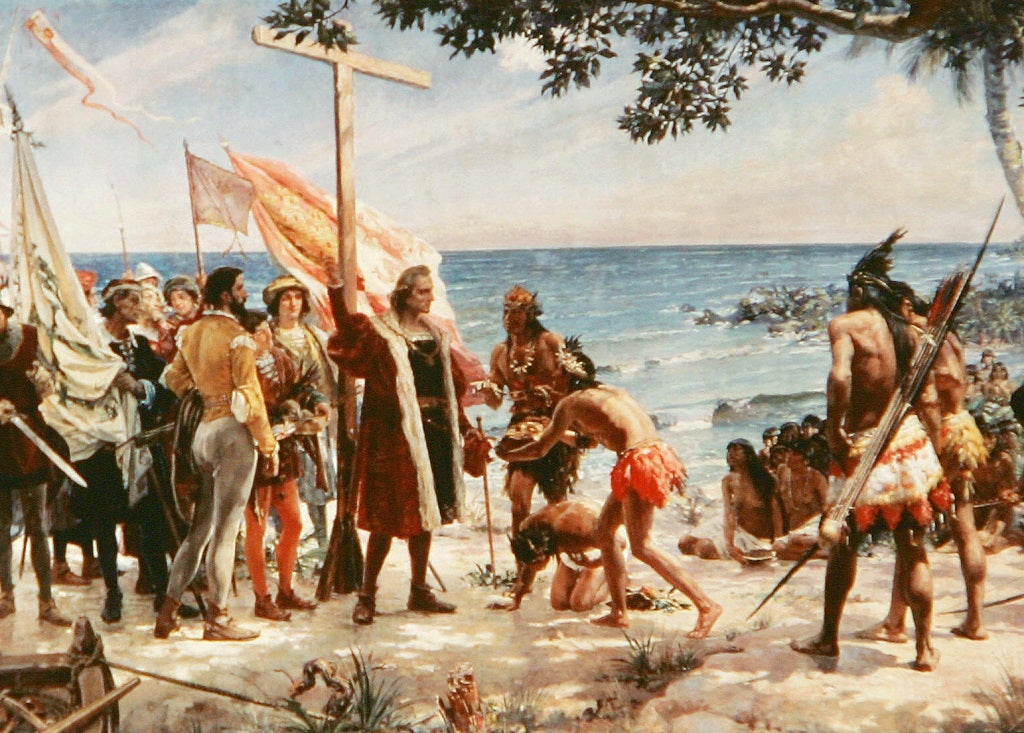Errors and Omissions: A wrong turn in Columbia
Our legendary pedant stares into the abyss of this week's metaphorical mix-ups - but not before an unexpected stop-off in Latin America

Here is what happens when you pack too much into one sentence: “Europe stands on the threshold of a series of dramatic make-or-break decisions this week that will determine whether the eurozone can finally move towards resolving its long-running economic crisis or shift alarmingly towards the abyss of European disintegration.”
That was the opening of a news story published on Tuesday. Palpably desperate to grab the reader’s attention, it falls into at least two difficulties. Towards the end, the grammar goes awry: “… can move towards … or shift alarmingly …” fails to convey the intended meaning. It should be “… can move towards … or must shift alarmingly …”.
More serious is the mixture of metaphors, first standing on a threshold, then shifting towards an abyss.
New World order: An article in last Saturday’s magazine, about the Zumba fitness craze, informed us that its founder “was supposed to be teaching an aerobics class in his home town of Cali, Columbia, but forgot his music”. That should be Colombia.
In the US you find the District of Columbia and the Columbia Broadcasting System (now known by its initials, CBS), but the South American country is called Colombia. They are both named after the same man. Why the difference?
As everybody knows, the first European navigator to discover the Americas (apart from the Vikings who founded a settlement in Greenland and may also have made landfall on the east coast of North America, but that is another story) was a 15th-century Genoese called, in Italian, Cristoforo Colombo. But since at that time Latin was the normal medium of diplomatic and scholarly communication across western Europe, anybody with an international reputation acquired a Latin name. The Latin version of the great explorer’s name – Columbus – is the one still current among speakers of English.
More in sorrow than in anger
More Latin in a Comment piece published on Tuesday: “In the opening chunk of his Annals, the Roman historian Tacitus claims he will write his history of the early Roman empire sine era et studio – without anger or favouritism.” That should be sine ira. Since you ask, sine era means “without the mistress”. Sadly, not mistress in the romantic sense, just mistress of the house.
When was that?
“Former” is one of those troublesome words. We may leave aside people who write “formally” when they mean “formerly” and vice versa. We are dealing with a less egregious error than that. This is from a news story published on Wednesday: “Last month, The Independent revealed that Dame Jo had queried Ms Sheldon’s medical state with senior officials at the Department of Health, and asked the former Health Secretary Andrew Lansley to remove Ms Sheldon from the board.”
What would be the point of asking a former Health Secretary to remove a board member? He couldn’t do it. No, Mr Lansley may be the former Health Secretary now, but then he was the present Health Secretary – so call him “the then Health Secretary”, and everybody knows what you are talking about.

Join our commenting forum
Join thought-provoking conversations, follow other Independent readers and see their replies